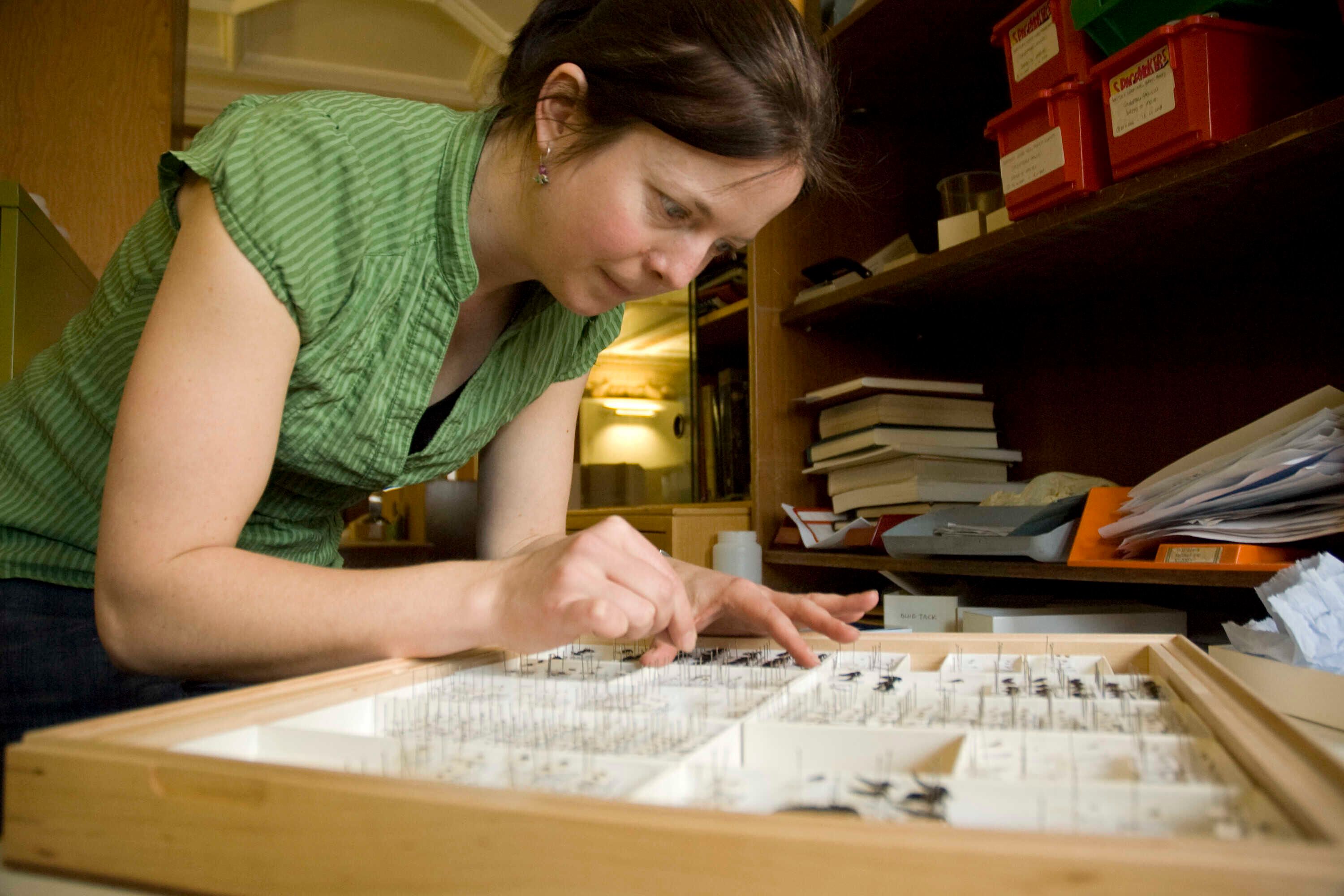
Molecular and Cellular Biosciences
Develop the fundamental skills needed for a career in biosciences research or academia.
Develop the fundamental skills needed for a career in biosciences research or academia
Receive practical training in the laboratory methods used to generate data
Apply your knowledge on two extended research projects
Course key facts
-
Qualification
-
MRes
-
-
Duration
1 year
-
Start date
September 2025
-
Study mode
Full-time
-
Fees
£15,500 Home
£38,600 Overseas
-
Delivered by
-
Location
-
South Kensington
-
Course overview
Receive practical training towards a career in modern biosciences research on this Master's course.
Suitable for graduates in a range of scientific disciplines, this course provides considerable flexibility to focus on specialist subjects in line with your research interests and career intentions.
You'll carry out two equally weighted research projects, one in the autumn term and the second in the summer term. These will be planned in consultation with expert staff.
You'll also develop transferable skills through a mixture of laboratory work, presentations and computer-based work.
Structure
This page is updated regularly to reflect the latest version of the curriculum. However, this information is subject to change.
Find out more about potential course changes.
Please note: it may not always be possible to take specific combinations of modules due to timetabling conflicts. For confirmation, please check with the relevant department.
You’ll take these core modules.
Through two research projects, you'll explore a wide range of biochemical research areas, and receive training in fundamental skills for a career within this area of science.
You'll focus on specialist subjects consistent with your interests and future career intentions.
Projects are available in a variety of subjects covered by the departmental research laboratories.
During the projects, you'll design experiments, analyse complex data and interpret your research findings.
Your work will be assessed by an individual research project report, oral presentation and viva.
The projects have an emphasis on developing your independence as a researcher, with training from individual supervisors.
Teaching and assessment
Teaching and learning methods
-
Computer-based work
-
Formal presentations
-
Individual lab research project and project reports
-
Laboratory work
Balance of assessment
Key
- Research Project 1
- Research Project 2
- 50% Research Project 1
- 50% Research Project 2
Assessment methods
-
Individual research project report
-
Oral presentation
-
Oral assessment
Entry requirements
How to apply
Apply online
You can submit one application form per year of entry. You can choose up to two courses.
Application deadlines – Round 1 closes on Thursday 16 January 2025
We operate a staged admissions process with several application rounds throughout the year.
Apply by 23.59 (UK time) on the closing date of an application round, to ensure you receive a response on your application by the relevant decision date.
Application rounds
Round 1
- Apply by Thursday 16 January 2025
- Decision by Thursday 6 March 2025
Round 2
- Apply by Thursday 27 March 2025
- Decision by Thursday 1 May 2025
Round 3
- Apply by Thursday 15 May 2025
- Decision by Thursday 17 July 2025
There is no application fee for MRes courses, Postgraduate Certificates, Postgraduate Diplomas, or courses such as PhDs and EngDs.
If you are applying for a taught Master’s course, you will need to pay an application fee before submitting your application.
The fee applies per application and not per course.
- £80 for all taught Master's applications, excluding those to the Imperial College Business School.
- £100 for all MSc applications to the Imperial College Business School.
- £150 for all MBA applications to the Imperial College Business School.
If you are facing financial hardship and are unable to pay the application fee, we encourage you to apply for our application fee waiver.
Find out more about how to apply for a Master's course, including references and personal statements.
Unless you are from an exempt nationality, you will need an ATAS certificate to obtain your visa and study this course.
Nationals from the following countries are exempt: Switzerland, Australia, Canada, Japan, New Zealand, Singapore, South Korea, USA and EEA members.
Use this information when applying for an ATAS certificate to study this course:
- CAH code: CAH03-01-08
- Descriptor: molecular biology, biophysics and biochemistry
- Supervisor name: Professor Daniel Davis
Get guidance and support for obtaining an ATAS certificate.
Tuition fees
Home fee
2025 entry
£15,500
You should expect and budget for your fees to increase each year.
Your fee is based on the year you enter the university, not your year of study. This means that if you repeat a year or resume your studies after an interruption, your fees will only increase by the amount linked to inflation.
Find out more about our , including how inflationary increases are applied to your tuition fees in subsequent years of study.
Whether you pay the Home or Overseas fee depends on your fee status. This is assessed based on UK Government legislation and includes things like where you live and your nationality or residency status. Find out .
If you're a UK national, or EU national with settled or pre-settled status under the EU Settlement Scheme, you may be able to apply for a from the UK government, if you meet certain criteria.
For courses starting on or after 1 August 2024, the maximum amount is £12,471. The loan is not means-tested and you can choose whether to put it towards your tuition fees or living costs.
The loan is not means-tested and you can choose whether to put it towards your tuition fees or living costs.
Overseas fee
2025 entry
£38,600
You should expect and budget for your fees to increase each year.
Your fee is based on the year you enter the university, not your year of study. This means that if you repeat a year or resume your studies after an interruption, your fees will only increase by the amount linked to inflation.
Find out more about our tuition fees payment terms, including how inflationary increases are applied to your tuition fees in subsequent years of study.
Whether you pay the Home or Overseas fee depends on your fee status. This is assessed based on UK Government legislation and includes things like where you live and your nationality or residency status. Find out how we assess your fee status.
If you're a UK national, or EU national with settled or pre-settled status under the EU Settlement Scheme, you may be able to apply for a Postgraduate Master’s Loan from the UK government, if you meet certain criteria.
For courses starting on or after 1 August 2024, the maximum amount is £12,471. The loan is not means-tested and you can choose whether to put it towards your tuition fees or living costs.
The loan is not means-tested and you can choose whether to put it towards your tuition fees or living costs.
How will studying at Imperial help my career?
Develop the fundamental skills needed for a research career in the biosciences industry or academia.
Your skills in management and communication will also prepare you for careers in other fields.
These include problem definition, project design, decision processes, teamwork, written and oral reports, and scientific publications.
Aside from research, Life Sciences graduates from Imperial are highly sought after in a variety of employment sectors.
These include business and consultancy, health and social work.
Other potential career paths include banking and finance, education, and manufacturing.
Further links
Contact the department
- Email: s.dennison@imperial.ac.uk
Course Director: Dr Tony Southall
Course Co-Director: Dr Michalis Barkoulas
Course Administrator: Sally Dennison
Visit the Department of Life Sciences website.

Request info
Find out more about studying at Imperial. Receive updates about life in our community, including event invites and download our latest Study guide.

Events, tasters and talks
Meet us and find out more about studying at Imperial.

Terms and conditions
There are some important pieces of information you should be aware of when applying to Imperial. These include key information about your tuition fees, funding, visas, accommodation and more.
You can find further information about your course, including degree classifications, regulations, progression and awards in the programme specification for your course.
Programme specifications